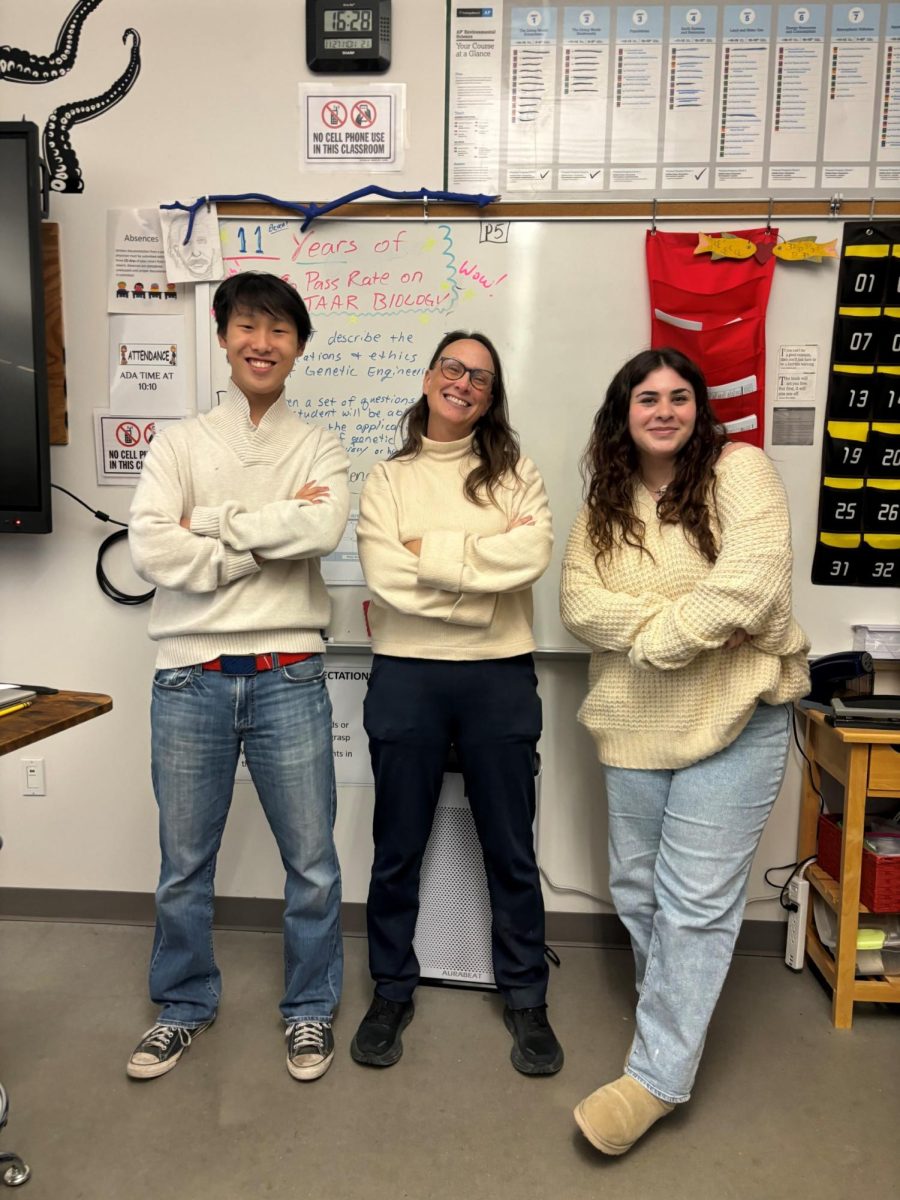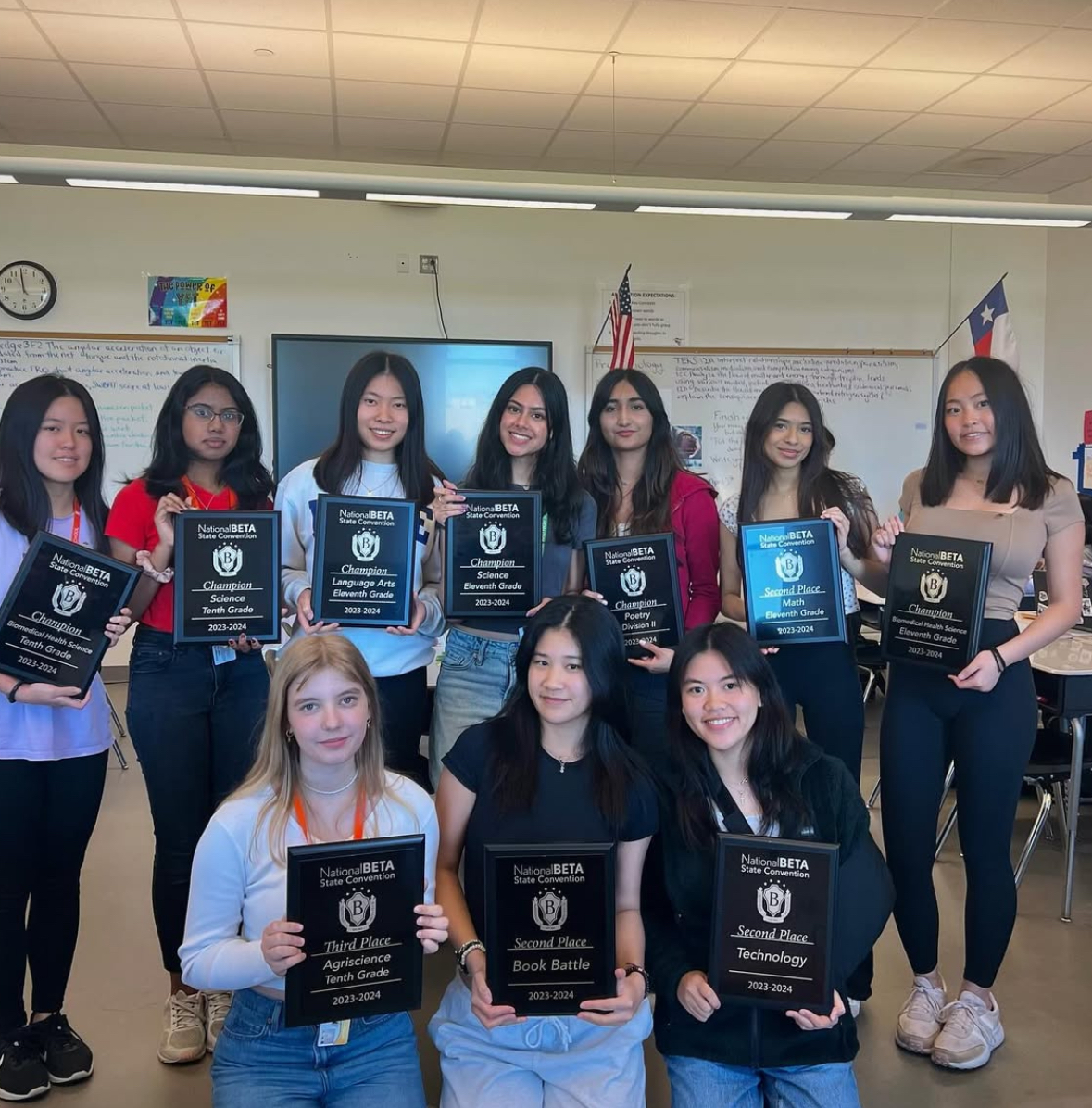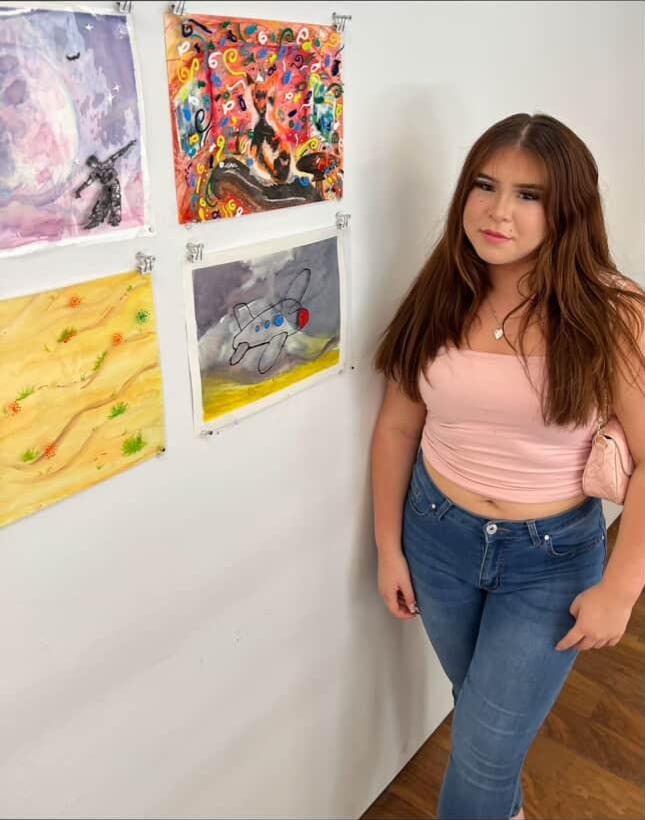Ms. Ford, whose room looks over the end of the science hallway, is a mainstay of our school’s teachers. She’s been here for eleven years. Currently, she teaches four science classes: freshman biology, AP Environmental Science, Scientific Research, and Anatomy & Physiology. She also coaches the girls’ cross country team, which has its competitive season in the fall, and the girls’ track and field team, which has its season in the spring.
Her room is bright, the floor space filled with tables, her large desk, projects from students, and lab materials. Anatomical models crown the cabinets. Over near the windows stands a labyrinth of scientific devices, including a 3D printer and the enclosures of 5 animals: two baby box turtles (the progeny of the turtles who used to inhabit Carnegie’s gardens), a Russian tortoise, Frank the bearded dragon, and Foster the leopard gecko. Over the whiteboard at the exit doors, a wall decal of the tentacles of an octopus stretches from behind the SMART TV. It’s the bit of decor that she’s proudest of; “it’s my favorite animal”. Below it, the whiteboard boasts 11 Years of 100% Pass Rate on the biology STAAR. The room sees variety during the day with four classes, which allow her to see the “bookends”, as she puts it; biology is, of course, a required class for freshmen, but her other classes are dominated by juniors and seniors. She says that this year’s freshmen are strong.
Across the hall and out the door lies the Sky Prairie. When Carnegie was first built, it was planted with muhly, grasses, and rosemary, but upkeep fell off. In 2015, Ms. Ford proposed to plant it with native flowers, turning it into the Sky Prairie. Since then, the Sky Prairie and the garden beds around the school have been cared for by Scientific Research.
Ms. Ford appreciates an “organic” teaching style and is glad that Carnegie’s administration is supportive of its teachers. She says that teachers are treated like professionals here, and given autonomy. However, the new HISD policies have inhibited her teaching style somewhat, and rules against watching extended videos in class have left her unable to show acclaimed documentaries that previously have been a mainstay of the AP Environmental Science curriculum. She says it’s hard to “keep the joy in the classroom”.
Outside of the classroom, however, Ms. Ford is “the best coach” Bela Jotwani and other runners on the CVHS Girls’ Cross Country Team “could ask for”. It’s a demanding sport where practices start before the school year even begins, and Carnegie’s team is one of the powerhouses of our district. This year, the Varsity team went to UIL Regionals, and the Junior Varsity team was the district champions. Bela says that Ms. Ford isn’t so stringent about times specifically as much as she cares that her runners improve over the year.
The track and field season hasn’t begun yet for this school year, but Mrs. Ford has seen a large turnout of interested girls for a school of our size. Practice is going to be in the afternoons, and despite Carnegie’s not having a track to practice on, Ms. Ford is optimistic about our performance this year, especially with returning champion Layla Paine. As a biology teacher, Ms. Ford knows well that exercise of all sorts is good for the body; as she says, “any person who wants to try a sport is already winning” by challenging themselves to improve their capabilities.
She says her favorite thing about teaching all her classes is the students themselves; they are “the saving grace” of the current situation, and she loves to have fun with her students and see the way they approach new things.









Andrew • Jan 31, 2024 at 8:36 am
W Ms. Ford